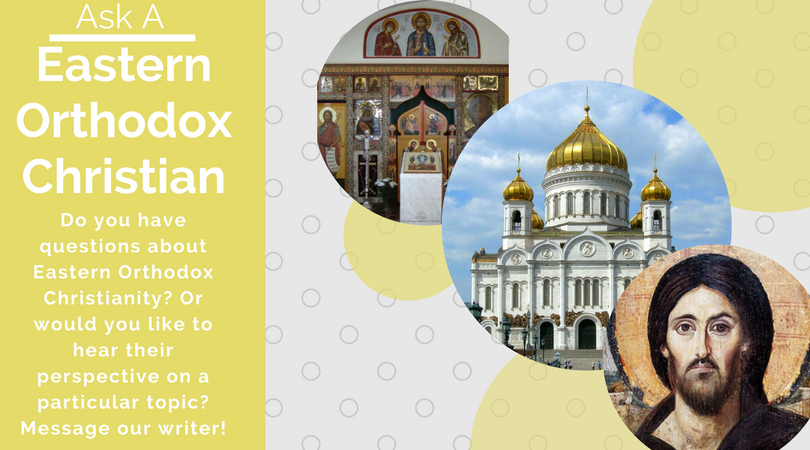Ask An Eastern Orthodox Christian: Heaven and Hell
What would you like to know about the Eastern Orthodox Christian faith? Submit your question.
How does the Orthodox view of Heaven and Hell interpret this judgment of God?
In the Eastern Orthodox Christian Church, there is no official doctrine or dogma concerning heaven and hell. However, they are understood from a consensus of theological opinions and commentary of the saints and church fathers.
The Orthodox belief is that God is everywhere, present, and fillest all things. There is no created place of divine absence. Heaven or hell may not be so much a place, but rather the individual’s attitude towards God’s ever-present love.
The acceptance or rejection of God’s unchanging, eternal love for us will either deifies us, “partakers of the divine nature” (2 Pet 1:4) or torments us, “for our God is a consuming fire.” (Heb 12.29, Deut 4:24, 9:3, Isa 33:14).
One could say that God, who loves his creation unconditionally, does not so much judge us, but rather He respects our own decision as to the life we had chosen to live and thereby dividing us accordingly on the final day of reckoning.
In the New Testament, Matthew 25:31-46 reveals what will take place on that Final Judgment Day. The righteous sheep will inherit eternal life in the Kingdom of God, and the cursed goats shall experience everlasting fire. The interesting observation is that both goats and sheep were surprised as to where they would be spending eternity!
The Goats…
Those that have freely chosen to live a prideful, self-centered, and unrepentant life without love “will go away into everlasting punishment” (Matt 25:46). A simple example of Hell might be like having the presence of those that an individual has despised or hated in this life accompanying him/her into the next life for eternity. No wonder scripture tells us that one would experience the “gnashing of teeth” (Matthew 13:50). For those that choose NOT to love, this condition is best described in
1 Corinthians 13:1-3 “Though I speak with the tongues of men and of angels, but have not love, I have become sounding brass or a clanging cymbal. And though I have the gift of prophecy, and understand all mysteries and all knowledge, and though I have all faith, so that I could remove mountains, but have not love, I am nothing. And though I bestow all my goods to feed the poor, and though I give my body to be burned, but have not love, it profits me nothing.”
The Sheep…
Those that have chosen a life that is kindled with love for others and their Creator, Christ will say to them, “Come, you blessed of My Father, inherit the kingdom prepared for you from the foundation of the world (Matt 25:14). One might describe love as simply the giving of oneself for the care of others as in the life of Mother Teresa. For those that choose to love one another, the characteristics of love are best described in
1 Corinthians 13:4-8 “Love suffers long and is kind; love does not envy; love does not parade itself, is not puffed up; does not behave rudely, does not seek its own, is not provoked, thinks no evil; does not rejoice in iniquity, but rejoices in the truth; bears all things, believes all things, hopes all things, endures all things. Love never fails. But whether there are prophecies, they will fail; whether there are tongues, they will cease; whether there is knowledge, it will vanish away.
Salvation for Eastern Orthodox Christian is best understood by the two great commandments in Matthew 22:37-40. “Jesus said to him, You shall love the Lord your God with all your heart, with all your soul, and with all your mind. This is the first and great commandment. And the second is like it: You shall love your neighbor as yourself. On these two commandments hang all the Law and the Prophets.”








… [Trackback]
[…] Read More here: favs.news/ask-an-eastern-orthodox-christian-heaven-and-hell/ […]